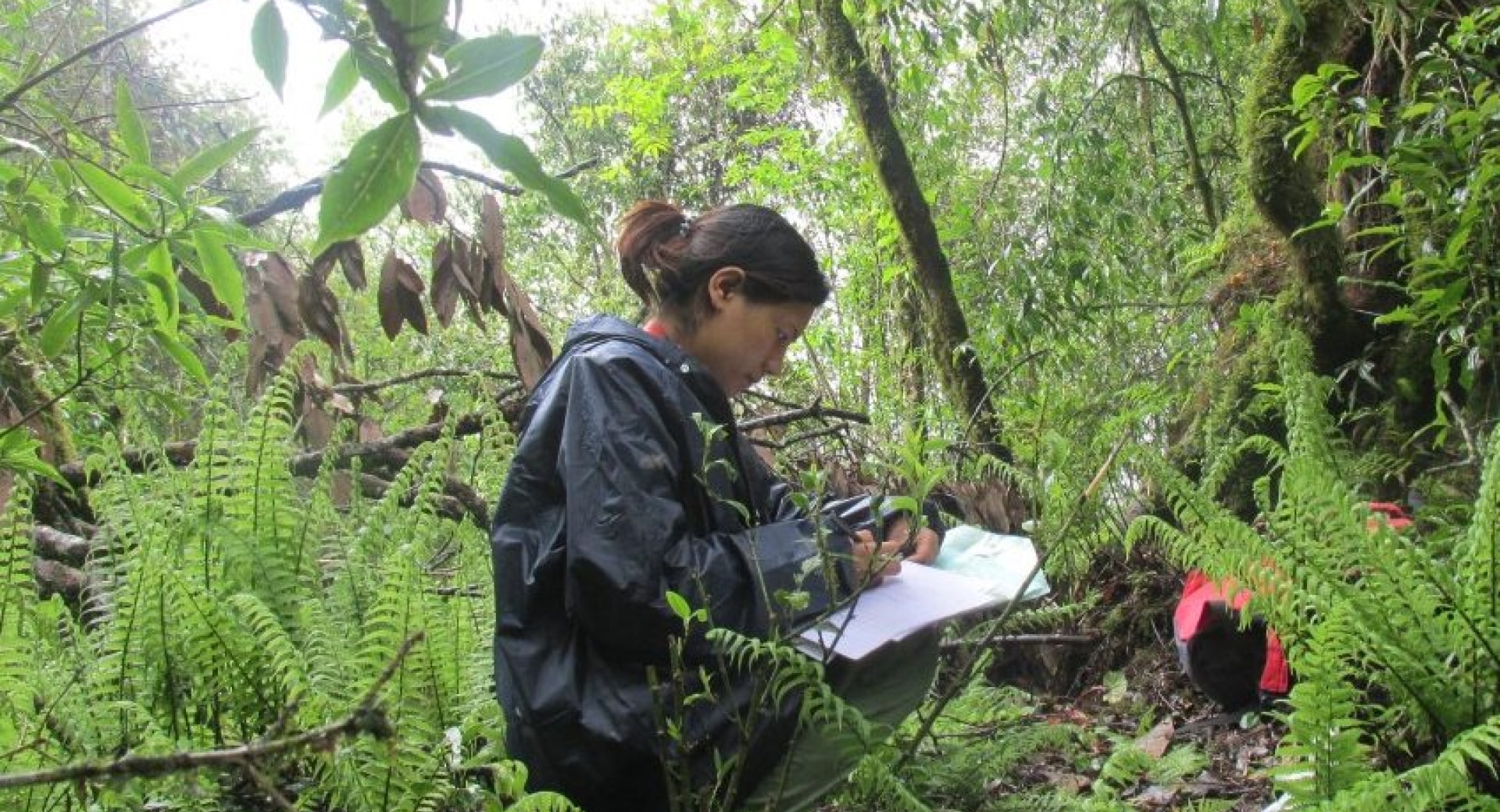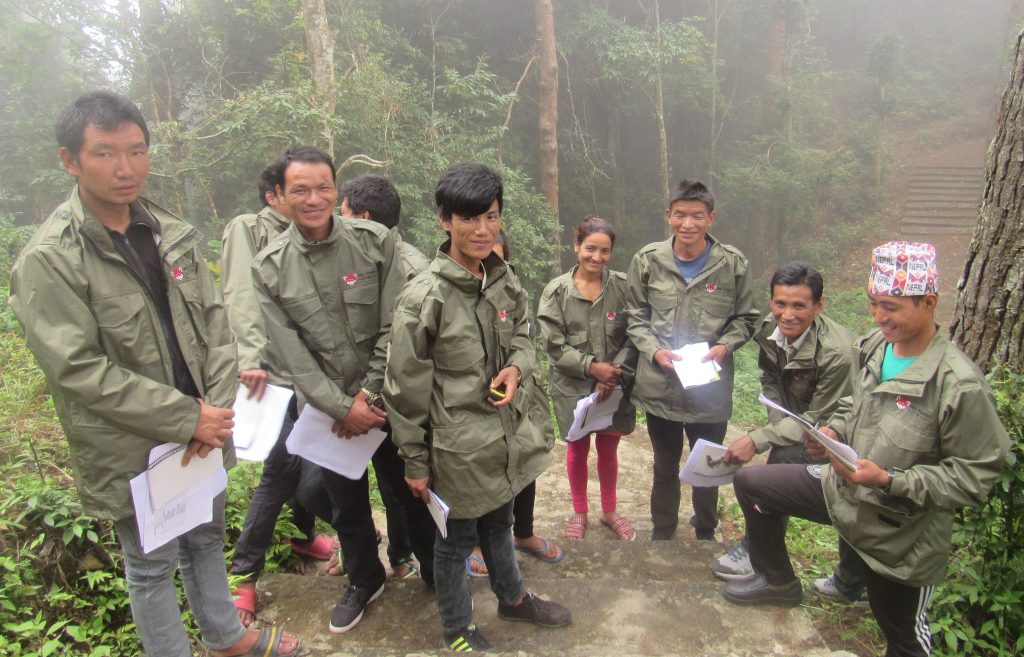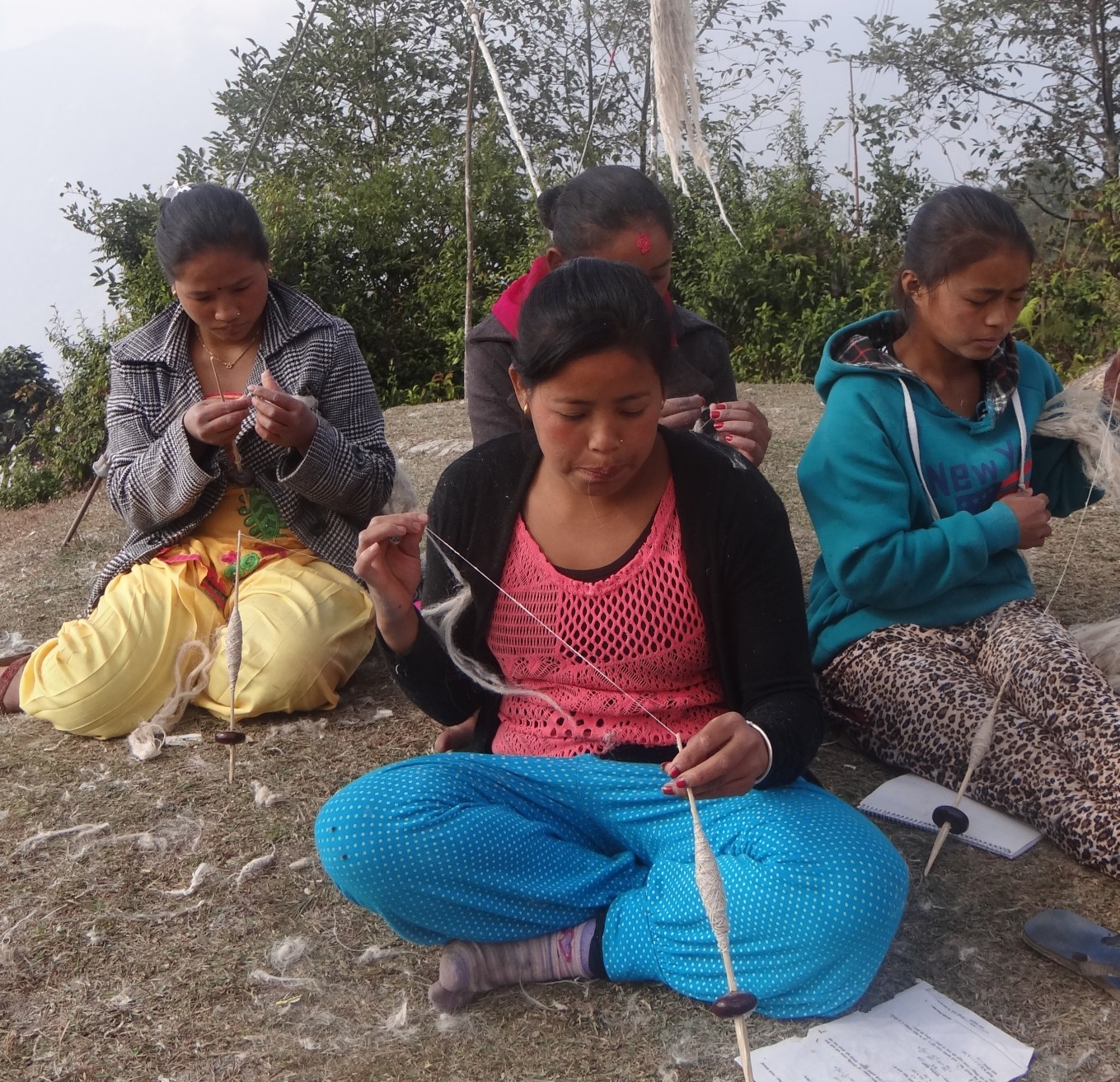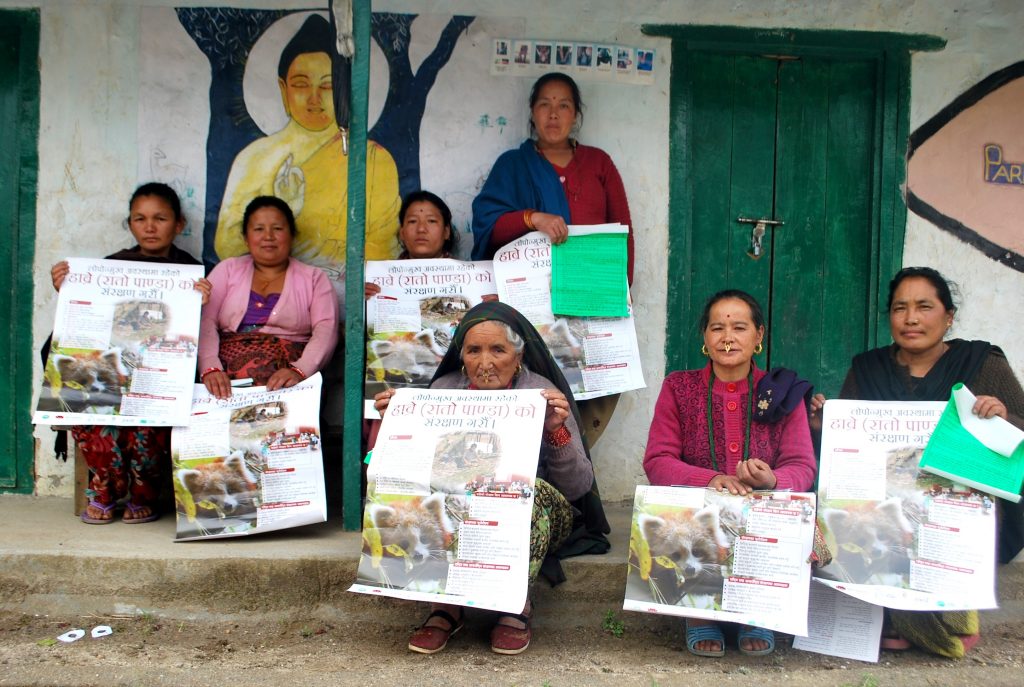The Changing Role of Women in Red Panda Conservation

Out of the Red Panda Network (RPN)'s 72 Forest Guardians in Nepal, Menuka Bhhatari is one of four women. Despite the fact that women tend to be the predominant forest users in Nepal, getting involved in conservation efforts isn't always easy for them.
Bhhatari has been threatened by poachers who try and convince her that there’s no use protecting red pandas and she’s been challenged by the village elderly who think that, as a woman, she should resign herself to doing household work. “The work for boys and girls is differentiated by God and Nature,” they tell her.
Yet, according to Bhhatari, women should not be limited to household chores and are just as much a part of red panda conservation in Nepal as their male counterparts. Even though they aren’t yet well represented within the organization’s Forest Guardian program, women remain a focal point of RPN’s conservation efforts, and change is happening gradually.
 Menuka Bhattarai and Forest Guardian colleagues during training.
Menuka Bhattarai and Forest Guardian colleagues during training.
“In Nepal, especially in the rural areas, women have always imposed a great influence on their surroundings,” said Damber Bista, Red Panda Network’s conservation manager. According to him, more than 90 percent of Nepali women in rural areas are involved with activities that affect the environment in some way, including cooking, firewood and fodder collection, and agricultural practices.
Bista admitted that it is a challenge for RPN to recruit women forest guardians. When the non-profit looks for new Forest Guardians, it asks local forest users and villages for their recommendations.
“They mostly recommend males,” said Bista, “even though we’ve been requesting them to recommend females. They say that it’s risky for females to go into the forest for the whole day. Even if some women dare to do this, some say it becomes hard to take care of their family at home.”
Just because it’s proven difficult to recruit females doesn’t mean that RPN is giving up, and has recently added three women to the Forest Guardian team. “Women remain one of the important target groups of our conservation program,” said Bista. “We believe that a well-educated mother can not only contribute to conservation, but also educate her children with good habits, which ultimately help to foster sustainable living.”
 Thread-making during nettle fiber extraction.
Thread-making during nettle fiber extraction.
Red Panda Network has a number of programs and initiatives specifically targeted to women, including nature guide training, homestay management training, and nettle fiber extraction training. Additionally, two of the 32 RPN’s Community Forest User Groups are comprised entirely of women members.
According to Pema Sherpa, one of Red Panda Network’s newest members, the door is slowly opening to getting more women involved in conservation efforts. As RPN’s Conservation Coordinator, Sherpa helps to assist in implementing and coordinating various activities with the organization’s field partners in eastern Nepal.
“Women are not allowed to put forth their views when discussing conservation policy, and they lack [equal] access to forest conservation efforts, but the scenario is changing,” said Sherpa. “In the past, women were confined only to household chores and they were hindered to get involved in conservation efforts.”
Today, says Sherpa, women and girls want to get involved with Red Panda Network’s conservation efforts, even if some families won’t allow women to work as Forest Guardians. “Nowadays,” she said, “society respects working women.” Sherpa specifically commented that many women are interested in becoming involved with ecotourism efforts as a way to conserve their environment.
“We believe that women are the first teachers of every child,” said Sherpa, “and that children are the building stones of every nation. Therefore, the participation of women in red panda conservation is crucial.”
 Local women with red panda posters.
Local women with red panda posters.
Fortunately for our friend Bhhatari, her family members are supportive of her being a Forest Guardian, and have been for the past three and a half years. “As a forest guardian, I have the chance to contribute my efforts to red panda conservation.”
When asked if she’d encourage a future daughter or a young girl in her village to become a Forest Guardian with the Red Panda Network, Bhhatari gave an emphatic “yes.”
“Even now,” she said, “I try to convince my friends to join because if we don’t take action now, red pandas will be extinct forever.”
Shane Downing
Writing and Communications Volunteer
Red Panda NetworkPlease check out Shane Downing’s work at www.scdowning.com
Twitter: @SCdowning
